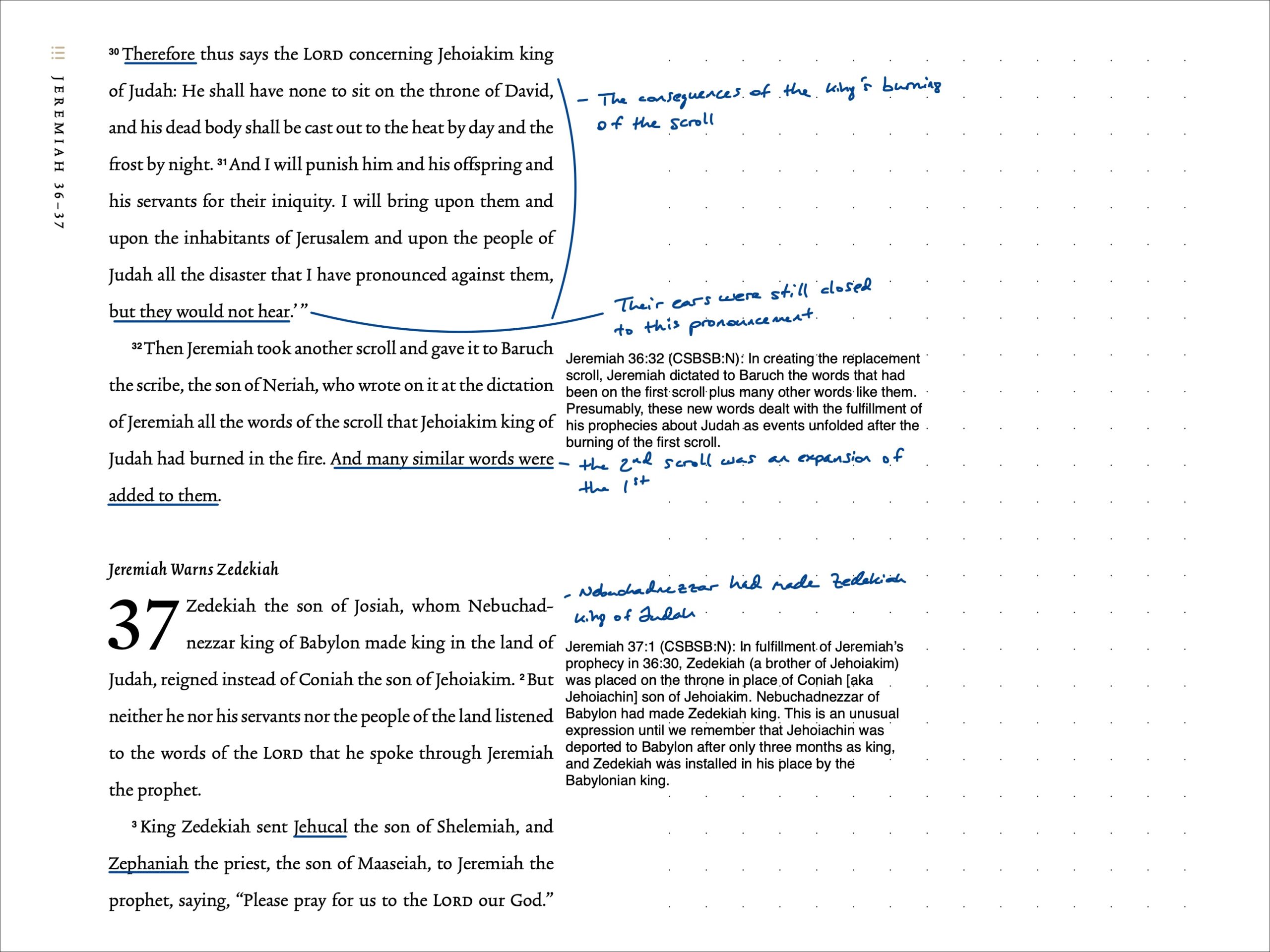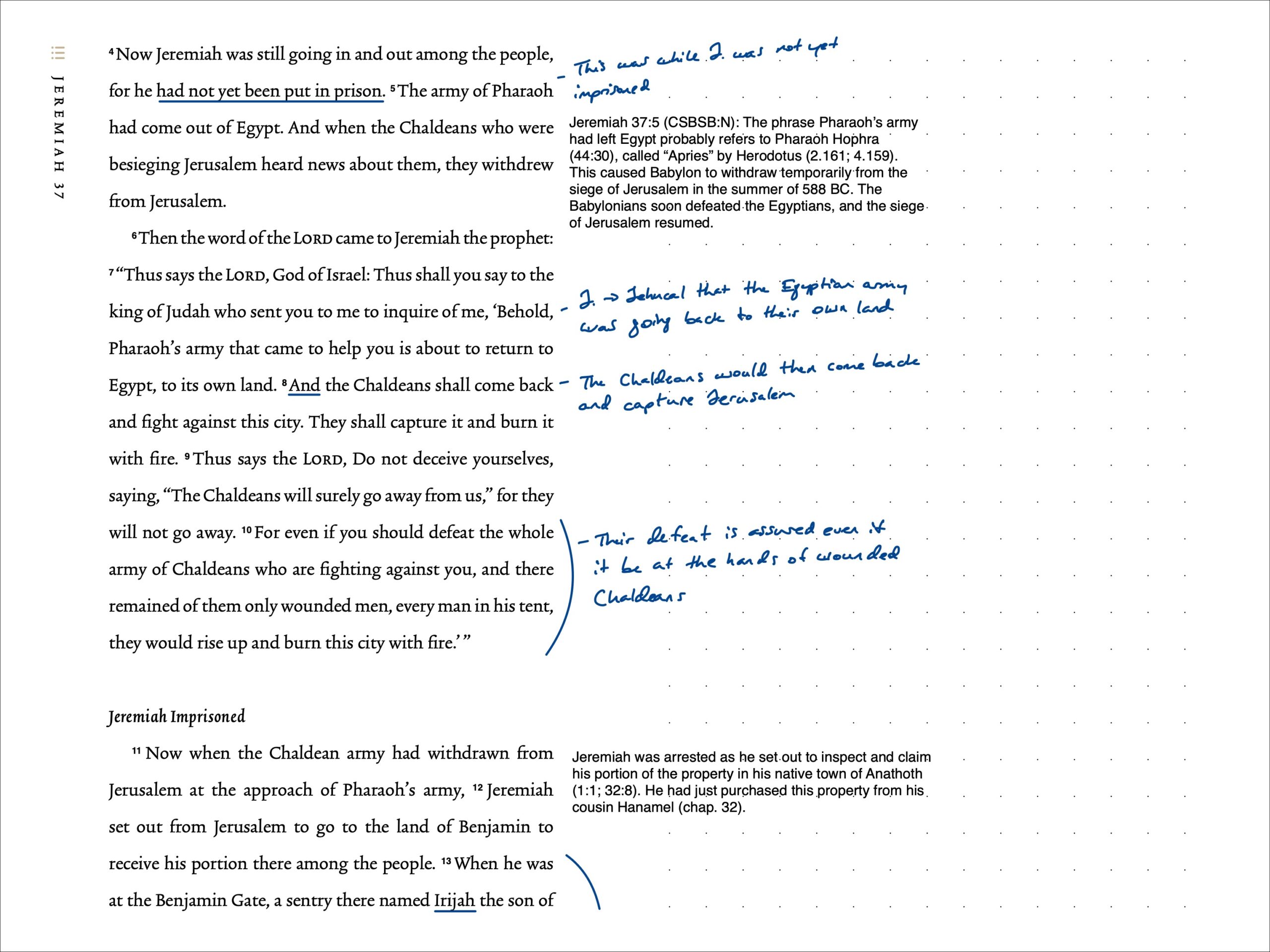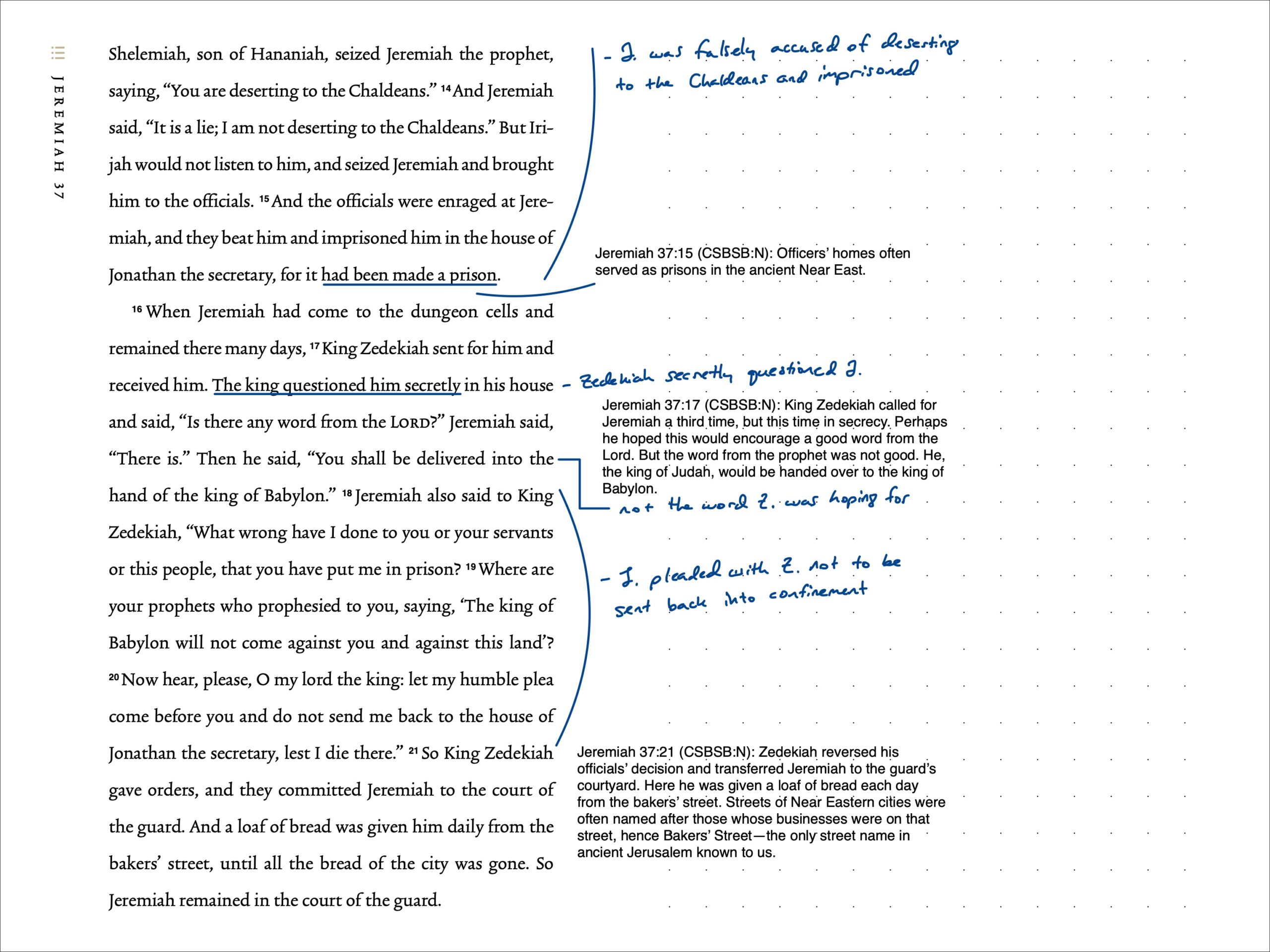| Date | Version | Reading Plan |
|---|---|---|
| @July 30, 2023 | ESV (2016) | ESV Prophets Plan 2023 |
Pericopes
- Jeremiah Warns Zedekiah
- Jeremiah Imprisoned
Notes
The chapter opens with a description of the kingly reign of Judah. Zedekiah had been appointed by Nebuchadnezzar over Coniah (Jehoiachin), the son of Jehoiakim. This seems unusual until we remember that Jehoiachin was deported to Babylon after only three months as king. Zedekiah was then installed in his place by the Babylonian king.
In Jer. 36:3, Zedekiah sent Jehucal to Jeremiah to pray to the LORD on their behalf. This was while Jeremiah had not yet been imprisoned and when the Pharaoh’s army had left Egypt, causing a temporary withdrawal of the Babylonian siege on Jerusalem in the summer of 588 BC.
In Jer. 37:6-10, the LORD speaks through Jeremiah to Jehucal that the Egyptian army would return to their own land and that the Chaldeans would come back to capture Jerusalem (Jer. 37:8). Even if Judah defeated the whole of the Chaldean army and there remained only wounded men, the Chaldeans would still “rise up and burn this city with fire.” (Jer. 37:10).
Jer. 37:11-15 is an account of how Jeremiah was wrongfully imprisoned for traveling to inspect and claim the property in his home town, Anathoth. This was the property he had been given by his cousin Hanamel in Jer. 32. A gate sentry, Irijah, mistook Jeremiah’s traveling as deserting to the Chaldeans and had him imprisoned “in the house of Jonathan the secretary” (Jer. 37:15). Officers’ homes often served as prisons in the ancient Near East.
In Jer. 37:16-17, after Jeremiah had stayed in the dungeon cells many days, King Zedekiah secretly sent for him to see if there had been any word of the LORD. The purpose of secrecy perhaps stemmed from the desire that it would encourage a good word from the LORD. However, this did not pan out as Jeremiah told him that he would be delivered to the king of Babylon (Jer. 37:17).
In the remaining verses, Jer. 37:18-21, Jeremiah questioned his imprisonment to Zedekiah and pleaded that he not be returned to the house of Jonathan the secretary. Zedekiah responded favorably to Jeremiah and transferred him to the guard’s courtyard where he was given a loaf of bread daily “from the baker’s street” (Jer. 37:21). Streets of Near Eastern cities were often named after their businesses and the Baker’s Street referenced here is the only known street name in ancient Jerusalem.
Application
From his dealing with Jehucal to his interaction with Zedekiah, Jeremiah remained steady and faithful in speaking the truth on behalf of the Lord. Though the truth is often difficult to deliver (as it was in Jeremiah’s day), it must be rightly and lovingly spoken. To misspeak or to withhold speech is to thwart one’s role as God’s ambassador. Our faithfulness lies in guiding others to Christ and of our being guided by them, acknowledging the goodness of God and of His sanctifying work within us.
Scripture Journal Notes
Commentaries & Resources Used
- ESV Study Bible. (Wheaton, IL: Crossway, 2008)
- Faithlife Study Bible (Lexham Press, 2016)
- Believer’s Bible Commentary (Thomas Nelson, 2016)
- CSB Study Bible Notes (Holman Bible Publishers, 2017)
- Matthew Henry’s Commentary on the Whole Bible (Guardian Press, 1976)
- The Bible: A Reader’s Guide (Sterling Publishing, 2011)
- The Infographic Bible (Zondervan, 2018)
- ESV Digital Scripture Journal (Crossway, 2019)


